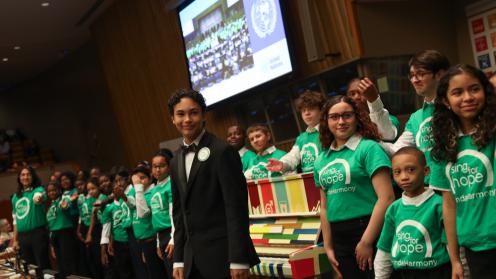Governance
The current system of global environmental governance reflects the challenge of assembling cooperation among the international community, even on environmental matters that all agree require common action. There are three elements to global environmental governance. One element is comprised of intergovernmental organizations within the United Nations system, led by the United Nations Environment Programme (UNEP), which are responsible for developing and coordinating environmental and sustainable development policy at the international level. A second element is the framework of international environmental law, which takes the form of a large number of environmental treaties. These treaties, such as the UN Framework Convention on Climate Change, are legally binding agreements that call on countries to take joint action on environmental problems. A third element is the financing mechanism to build capacity to carry out treaty commitments, to supplement national efforts toward sustainable development in poorer countries, and to support the UN agencies and treaty secretariats that coordinate and carry out environmental efforts. These include the bilateral development assistance, the World Bank, other regional development banks, UN funds like the UN, the Global Environment Facility, philanthropies, and the private sector.
